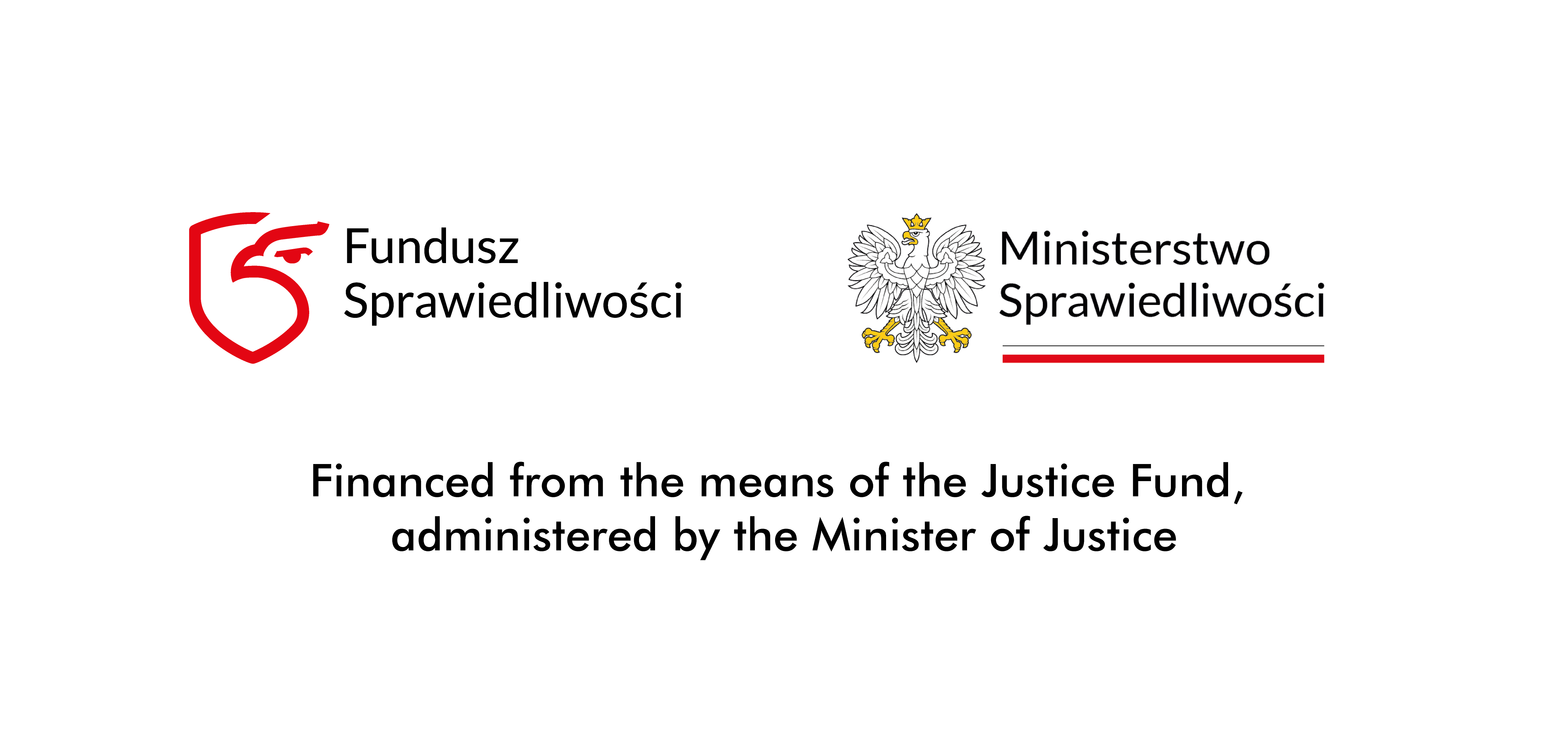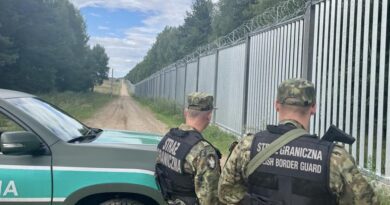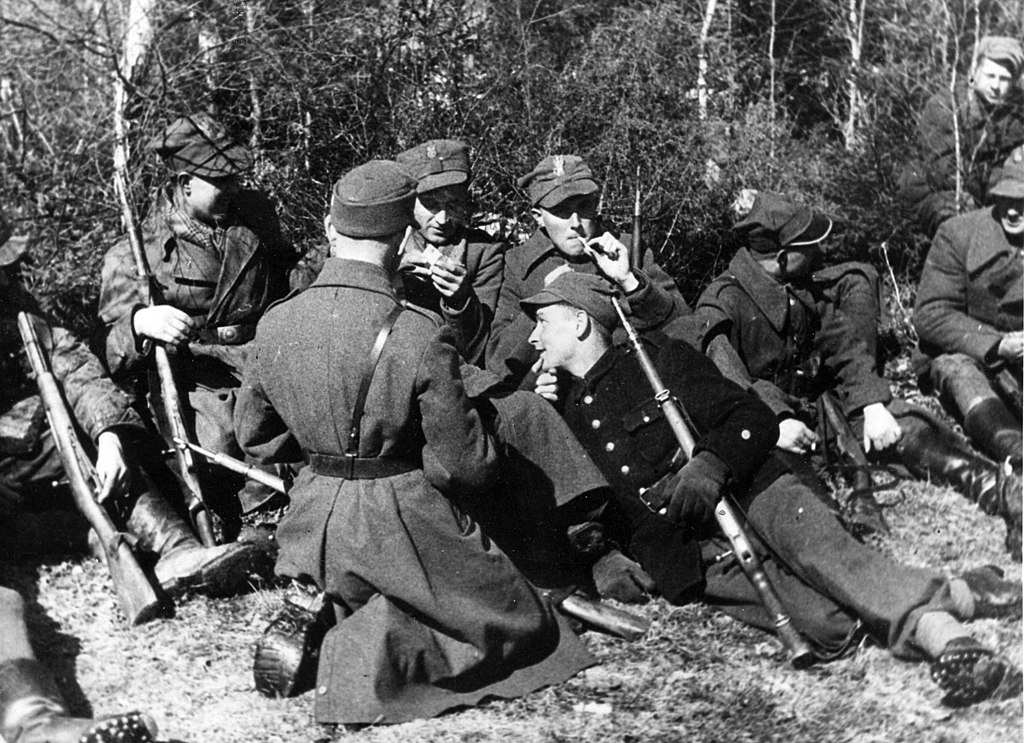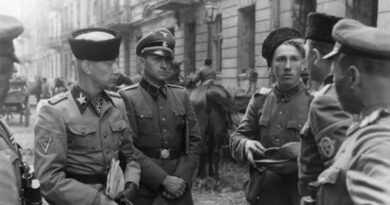The true face of the author of the “bombshell” about John Paul II

What is the aim of the book “Maxima Culpa”, Mr. Overbeek? Because it is certainly not to discover the truth.
Tomasz Rowiński
Who is Ekke Overbeek, the Dutch journalist who in our country has been depicted by some of the media as the conscience of the Polish Church? Actually, it ought to be said that he is no one in particular. A man who was clever enough to be in the right place at the right time along with his “interests.” The book Maxima Culpa. John Paul II Knew, however, demonstrates well that it is not enough to have “interests” in order to speak in a meaningful way in the public debate. The case of Overbeek, however, tells us something else. You don’t even need elementary integrity to break through with a message that is hostile to the Church, Catholicism, or Polish tradition seen in this particular perspective.
It is impossible to write about Overbeek in isolation from his latest book, because it really says a lot about this author. The manner in which this cannon was prepared causes embarrassment not only to those who are committed to defending the memory and good name of John Paul II, and therefore also seek knowledge of how things were in the past. It also causes distaste in those who, simply being interested in the truth, reached for the Maxima Culpa volume.
Patryk Słowik, a journalist for the wp.pl portal, which is a medium that can really hardly be considered favorable to the Church, reported on his reading of the book in an interesting way. “I read the book without any bias in my head. In fact, I wrote a few days ago that the matter of John Paul II’s deeds should be fairly clarified. But after reading the book, I think that the author really wanted to outline strong theses in mind, and – unfortunately – there wasn’t enough time to conduct a proper workshop on them,” Słowik wrote on social media. “And without getting into arguments about the role of the Pope in covering up pedophilia in the Church – if I had written texts in such a way as the author of the book freely draws conclusions, I would have been convicted of libel many times over long ago,” the journalist added. “Example one of many: ‘if the cardinal is telling the truth, this is further proof that John Paul II encouraged the bishops to cover up sex crimes.’ Does the author then try to determine whether the cardinal was telling the truth? Sadly not. He assumes that John Paul II is certainly guilty of covering things up,” concludes the journalist of the wp.pl portal.
A TINKERER OF THE LIBERAL LEFT
Ekke Overbeek has been working in Poland for years. He is known as a correspondent for Dutch dailies, including Trouw and Het Financieele Dagblad in our region of Europe. He has also written for the Belgian De Tijd. For years he has been trying – it is worth emphasizing the word “trying” – to deal with sex scandals in the Polish Church. However, his latest book tends to lead one to believe that he is more interested in his position as a “tinkerer” in the circles of the liberal left, which are undoubtedly represented by Agora – the publisher of both the book Maxima Culpa and Gazeta Wyborcza – than in his desire to get to the truth. Andrzej Pawluszek, a correspondent for the Polish Press Agency in Amsterdam and an author who has published in De Volkskrant, the aforementioned Trouw and Nederlands Dagblad, among others, characterized Overbeek on social media on March 8th as follows: “The Dutch author of the book about John Paul II is no recognized authority. His texts about Poland are biased and characterized by dislike for Law and Justice.”
In his posts, Pawluszek also mentioned another case of confabulation committed by Overbeek: “I would like to recall that the author of a book about John Paul II, Ekke Overbeek, lied in 2016 that anti-Semitic incidents had increased in Poland. I straightened this out in a polemic published by the daily @trouw. The Dutch journalist has an ease of forming opinions that are not supported by facts,” the correspondent noted.
Overbeek also bragged in the Polish media about other bizarre statements. In December 2021, and thus just two months before the Russian invasion of Ukraine, but some time after the hybrid attack that took place on the Polish-Belarusian border, he said in an interview with TVN24: “Relations with Russia are not there, it’s an ice age. But when you look at what interests Russia has, it may turn out that PiS, however, is a very pro-Kremlin party.” Overbeek is constant in his dispatches. Eryk Mistewicz, president of the Institute for New Media, publishers of the monthly opinion magazine Everything Most Important, and PAP journalist Anna Gwozdowska have in recent days recalled Overbeek’s extensive 2017 text for a Dutch portal entitled “Russophobic Poland: noisily anti-Western, tacitly supporting the Kremlin.” The authorities on Polish issues in this text are Gazeta Wyborcza journalist Pawel Vronsky or Tomasz Piątek, an author who has lost lawsuits for libel committed by his texts several times in recent times. Overbeek criticizes everything in “Rusophobic Poland,” even the obvious success of the Polish Army, namely the development of WOT units.
It is worth recalling that for years it has been a constant stance of liberal and left-wing opinion in Poland to implicate all those who, for example, maintain a “conservative” stance on issues of public morality, in connection with the Kremlin. In reality, the issue is not any conservatism, which has very different faces, but the Polish right’s attachment to Catholic or legal-natural principles that are the foundation of social life. In her study of Overbeek’s silhouette, Gwozdowska also mentions another of his texts from Dutch media, in which the latter compares Kaczynski and Putin. Is this surprising? Not necessarily, since in 2015 Overbeek wrote and published in his country a hagiographic book dedicated to Donald Tusk entitled Eurotopper Tusk – A New Poland in Europe, one has to consider his views established. What is typical, on the cover of the book, in addition to its hero, we can also see Angela Merkel in Tusk’s background – or backstage perhaps?
In the aforementioned interview with TVN24, Overbeek also lectured Poles on their alleged misunderstanding of history, in fact showing complete ignorance of the nation-building processes that took place in our lands in the 19th and 20th centuries. “There is such a post-slavery narrative going on in Poland, despite the fact that most people in Poland actually have a peasant and de facto slave background,” the journalist said. There was also a word about the “role of Poles” in the extermination of Jews during World War II. As Wprost weekly journalist Dariusz Grzędzinski aptly noted, “At this point, this sick stream of consciousness should be stopped, and Mr. Ekke’s presence in the media should be terminated forever.” However, interviewer Jacek Tacik did not react.
ATTACK AT ALL COSTS
Let’s return to Overbeek’s ecclesiastical interests. In 2013, he published the book Fear. Victims of pedophilia in the Polish Church speak out, which was published by the Czarna Owca publishing house. “Most victims, despite the passage of time, are still ashamed, still afraid to speak up. They succumb to the blackmail of the Church, which oozes into their heads: ‘Be afraid.’” – referred Overbeek to this work of his from a decade ago in a recent interview with Newsweek, in which he was promoting a new book. Helping Overbeek promote that former position was Marek Lisinski, a fraudster and founder of the Nie Lękajcie Się (Don’t Be Afraid)1 Foundation, who portrayed himself as a victim of pedophilia coming from Church priests, which turned out to be a lie. It was Overbeek who allegedly inspired Lisinski to institutionalize his scam – as it later turned out. Among those who were so determined to attack the Church at all costs that they were fooled by Lisinski were not only Overbeek, but also left-wing politicians Joanna Scheuring-Wielgus and Agata Diduszko-Zyglewska. Note that these people led to Lisinski’s meeting with Pope Francis, who kissed the crook’s hands in a gesture of apology after being told that he was abused by Church priests as a boy.
“For the victims, it would be a blow. For the foundation as well. For the book, no longer. It has fulfilled its role. I wanted to show that the problem of pedophilia also exists in Poland. Today, few people doubt it. And this is a huge change. The case of one man will not change this,” Overbeek commented on the case of the exposure of Lisinski’s fraud. After the book was published, Overbeek still made a video, Silence in the Shadow of John Paul II, which, however, did not cause much of a stir. It has less than 800 views on YouTube.
A COLD RECEPTION
Was Ekke Overbeek’s book Maxima Culpa well received in his homeland? It seems that not especially. Admittedly, Trouw refused to publish the polemic written by Diederik Wienen, who had apparently read the reliable studies of the topic of pedophile priests in the Cracow archdiocese from the time of Cardinal Wojtyla, which came out from the pens of Tomasz Krzyzak and Piotr Litka. However, there have been distanced comments in the Dutch media regarding both the merits and methodology of the book. The Nederlands Dagblad also published an interview with Tomasz Krzyzak, which should be considered a good sign and a symptom of the sobriety of journalists there in assessing the situation. For commentators from Overbeek’s country, the argument of the low credibility of the archives that the security services produced seems significant. From our perspective, things look more complex, and today it is necessary to talk about Overbeek’s over-interpretation – according to Krzyzak and Litka – or perhaps simply abuse and manipulation.
Unfortunately, it can be expected that the individual concerned will respond to the criticism he faces without any embarrassment, in a similar manner as he did after Lisinski’s fraud reveal – the book has “served its purpose.” One can hardly expect anything else, since he spoke in the Dutch media without batting an eyelid about the case of Fr. Eugeniusz Surgent as the crown proof of Cardinal Wojtyla’s guilt. And yet this case was reliably explained by the journalists of Rzeczpospolita. What is the aim of the book Maxima Culpa, Mr. Overbeek? Because it is certainly not to discover the truth. What, then?
1 The name of the foundation specifically cites the words of Johna Paul II issued during a homily commencing his pontificate in 1978
This article was published in March 2023 in Do Rzeczy weekly.




